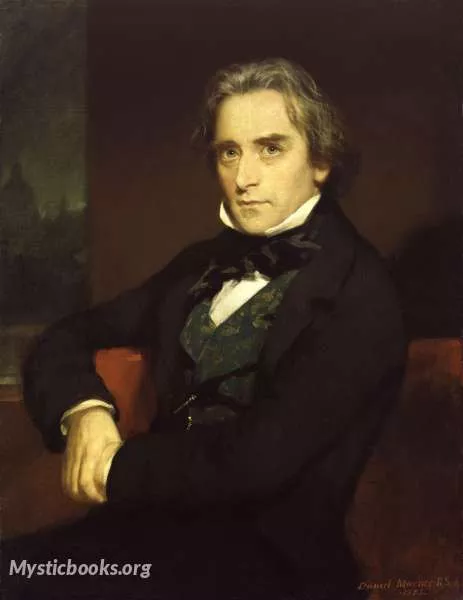
Timeline
Title
Country/Nationality
Douglas William Jerrold
Douglas William Jerrold was an English dramatist and writer.
Jerrold's father, Samuel Jerrold, was an actor and lessee of the little theatre of Wilsby near Cranbrook in Kent. In 1807 Douglas moved to Sheerness, where he spent his childhood. He occasionally took a child part on the stage, but his father's profession held little attraction for him. In December 1813 he joined the guardship Namur, where he had Jane Austen's brother Francis as captain, and served as a midshipman until the peace of 1815. He saw nothing of the war save a number of wounded soldiers from Waterloo, but he retained an affection for the sea.
The peace of 1815 ruined Jerrold's father; on 1 January 1816 he took his family to London, where Douglas began work as a printer's apprentice, and in 1819 he became a compositor in the printing-office of the Sunday Monitor. Several short papers and copies of verses by him had already appeared in the sixpenny magazines, and a criticism of the opera Der Freischütz was admired by the editor, who requested further contributions. Thus Jerrold became a professional journalist.
Jerrold's figure was small and spare, and in later years bowed almost to deformity. His features were strongly marked and expressive, from the thin humorous lips to the keen blue eyes, gleaming from beneath the shaggy eyebrows. He was brisk and active, with the careless bluffness of a sailor. Open and sincere, he concealed neither his anger nor his pleasure; to his sailor's frankness all polite duplicity was distasteful. The cynical side of his nature he kept for his writings; in private life his hand was always open. In politics Jerrold was a Liberal, and he gave eager sympathy to Lajos Kossuth, Giuseppe Mazzini and Louis Blanc. In social politics especially he took an eager part; he never tired of declaiming against the horrors of war, the luxury of bishops, or the iniquity of capital punishment.
Douglas Jerrold is now perhaps better known from his reputation as a brilliant wit in conversation than from his writings. As a dramatist he was very popular, though his plays have not kept the stage. He dealt with rather humbler forms of social world than had commonly been represented on the boards. He was one of the first and certainly one of the most successful of the men who in defence of the native English drama endeavoured to stem the tide of translation from the French, which threatened early in the 19th century to drown original native talent. His skill in construction and his mastery of epigram and brilliant dialogue are well exemplified in his comedy, Time Works Wonders (Haymarket, 26 April 1845). The tales and sketches which form the bulk of Jerrold's collected works vary much in skill and interest; but, although there are evident traces of their having been composed from week to week, they are always marked by keen satirical observation and pungent wit.
Books by Douglas William Jerrold

Mrs. Caudle's Curtain Lectures
First serialized in Punch magazine in 1845, and officially published in book form in 1846, Mrs. Caudle's Curtain Lectures presents a collection of 37 lectures delivered by Mrs. Caudle to her husband as a means of reproach for his trivial infractions....